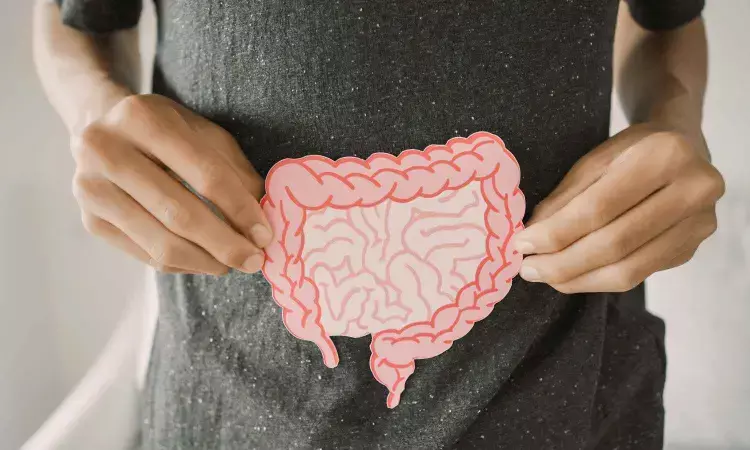- Home
- Medical news & Guidelines
- Anesthesiology
- Cardiology and CTVS
- Critical Care
- Dentistry
- Dermatology
- Diabetes and Endocrinology
- ENT
- Gastroenterology
- Medicine
- Nephrology
- Neurology
- Obstretics-Gynaecology
- Oncology
- Ophthalmology
- Orthopaedics
- Pediatrics-Neonatology
- Psychiatry
- Pulmonology
- Radiology
- Surgery
- Urology
- Laboratory Medicine
- Diet
- Nursing
- Paramedical
- Physiotherapy
- Health news
- Fact Check
- Bone Health Fact Check
- Brain Health Fact Check
- Cancer Related Fact Check
- Child Care Fact Check
- Dental and oral health fact check
- Diabetes and metabolic health fact check
- Diet and Nutrition Fact Check
- Eye and ENT Care Fact Check
- Fitness fact check
- Gut health fact check
- Heart health fact check
- Kidney health fact check
- Medical education fact check
- Men's health fact check
- Respiratory fact check
- Skin and hair care fact check
- Vaccine and Immunization fact check
- Women's health fact check
- AYUSH
- State News
- Andaman and Nicobar Islands
- Andhra Pradesh
- Arunachal Pradesh
- Assam
- Bihar
- Chandigarh
- Chattisgarh
- Dadra and Nagar Haveli
- Daman and Diu
- Delhi
- Goa
- Gujarat
- Haryana
- Himachal Pradesh
- Jammu & Kashmir
- Jharkhand
- Karnataka
- Kerala
- Ladakh
- Lakshadweep
- Madhya Pradesh
- Maharashtra
- Manipur
- Meghalaya
- Mizoram
- Nagaland
- Odisha
- Puducherry
- Punjab
- Rajasthan
- Sikkim
- Tamil Nadu
- Telangana
- Tripura
- Uttar Pradesh
- Uttrakhand
- West Bengal
- Medical Education
- Industry
Low FODMAP diet improves leaky gut in study

In a study, patients with irritable bowel syndrome with diarrhea, or IBS-D, who went on a low FODMAP diet saw an improvement of colonic barrier dysfunction, commonly known as “leaky gut.”
The results, published in Gastroenterology, represent the first evidence of low FODMAP’s potential ability to improve intestinal permeability and mast cell activation in patients with IBS.
“Diet and microbiome have been believed to be related to leaky gut, but the reasons why were not well understood,” said Prashant Singh, MBBS, Michigan Medicine gastroenterologist and senior author on the paper.
“This research illuminates the mechanism of how food can interact with gut microbiome and gut immune system to influence colonic barrier dysfunction—and validates the low FODMAP diet as a treatment option that not only improves symptoms but underlying dysfunction in IBS.”
The low FODMAP diet is a proven intervention for patients with IBS.
Most IBS sufferers report food-triggered symptoms and prefer dietary inventions to pharmacotherapy.
Leaky gut refers to symptoms caused by increased permeability of the intestinal lining.
This permeability is thought to have a variety of negative consequences, including the dissemination of bacterial toxins and products as well as sensitization of local nerves which can cause pain in IBS.
Researchers studied human patients to test the potential of low FODMAP to address leaky gut, while mice treated with stool from these patients were used to investigate the mechanisms of how diet potentially improves the colonic barrier.
Forty-eight patients with IBS-D (irritable bowel syndrome with diarrhea) were put on a four-week low FODMAP diet (restriction phase) and provided with the low FODMAP meals for the study duration.
Of the 42 participants to complete the study, 34 responded to the low FODMAP diet, all of whom experienced lessened diarrhea and abdominal pain.
Prior studies have shown that patients with IBS-D have increased number of mast cell (type of inflammatory cell in colon lining), and leaky gut.
Studies have shown that mast cells are also more likely to be activated in IBS-D.
In this study, barrier function, and mast cell activation was assessed in a variety of ways before and after the four-week period.
Researchers found that in addition to improvement in leaky gut, low FODMAP also reduced the number and activation of mast cells in the colon lining in these patients.
Researchers also worked toward an explanation of how low FODMAP improves leaky gut (and how a diet high in FODMAP foods can contribute to barrier dysfunction.)
Lipopolysaccharides are molecules derived from gut microbiome that can cause immune-system responses when they escape the gut.
In this latest study, an analysis using mice, researchers showed that high FODMAP diet in IBS-D patients increases fecal LPS levels to activate mast cells which in turn make the barrier leakier.
Given these results, researchers recommend that providers consider mast cell stabilizers in addition to a low FODMAP diet-or as an alternative to the low FODMAP diet when it is contraindicated.
“Our study shows diet is not a quick fix-it’s a real solution for some patients with IBS,” Singh said.
The authors hope future studies will include a larger sample size, specifically of patients who do not respond to low FODMAP diet, and a variety of IBS types besides IBS-D.
Reference:
Gao, Jun, Low FODMAP diet improves colonic barrier function and mast cell activation in patients with IBS-D: A mechanistic trial, Gastroenterology.
Dr Kamal Kant Kohli-MBBS, DTCD- a chest specialist with more than 30 years of practice and a flair for writing clinical articles, Dr Kamal Kant Kohli joined Medical Dialogues as a Chief Editor of Medical News. Besides writing articles, as an editor, he proofreads and verifies all the medical content published on Medical Dialogues including those coming from journals, studies,medical conferences,guidelines etc. Email: drkohli@medicaldialogues.in. Contact no. 011-43720751


